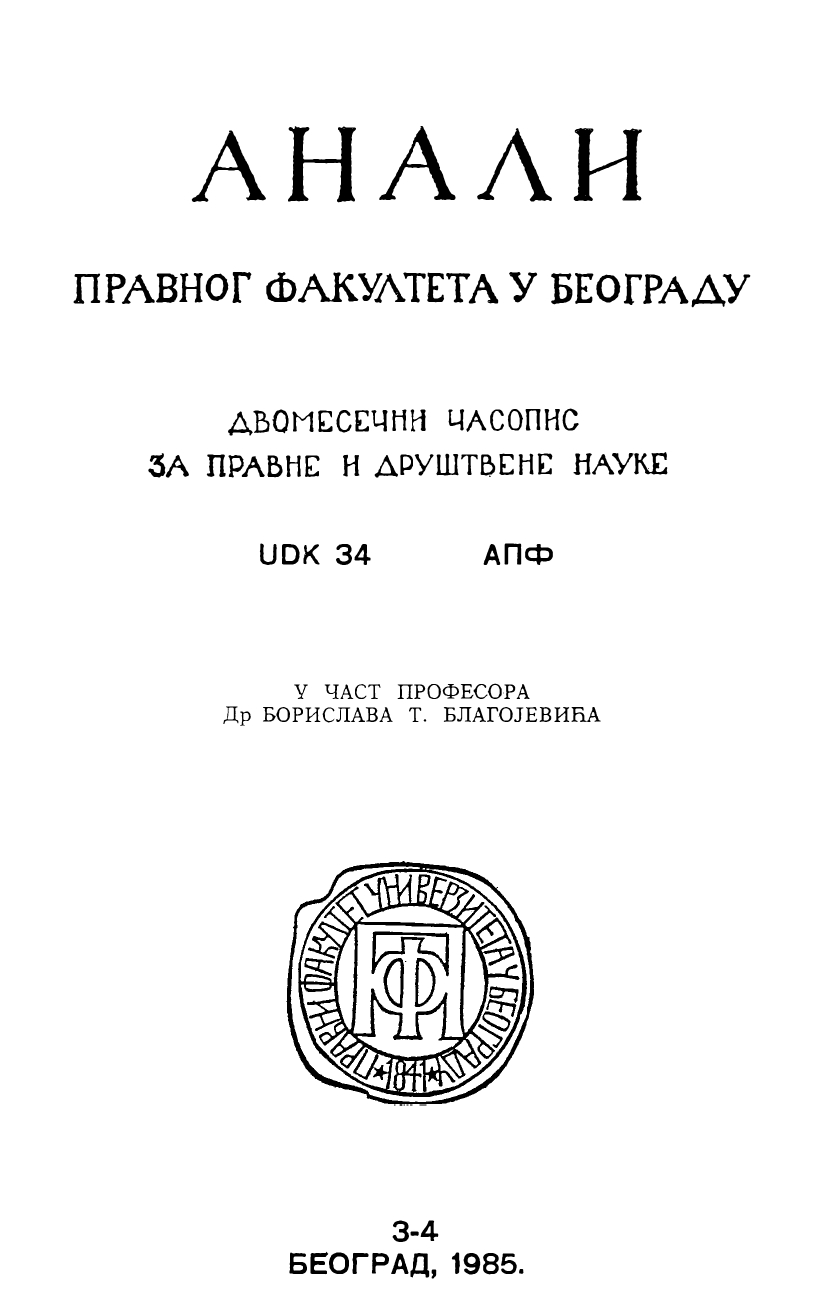НАПОМЕНЕ О ПРАВНИМ ИНСТРУМЕНТИМА ЗА ЗАШТИТУ „СЛАБИЈЕ СТРАНЕ” У УГОВОРИМА МЕЂУНАРОДНОГ ПРИВРЕДНОГ ПРАВА
OBSERVATIONS ON LEGAL INSTRUMENTS AIMED AT PROTECTING »THE WEAKER PARTY« IN ECONOMIC INTERNATIONAL LAW CONTRACTS
Author(s): Tibor VaradiSubject(s): Law, Constitution, Jurisprudence, International Law
Published by: Правни факултет Универзитета у Београду
Summary/Abstract: In some economic international law contracts there is a clear correlation between the specific position of the party in the contract and specific countries. Thus, for instance, in the transfer of technology contracts concluded between companies from industrially developed countries, namely the developing countries, the subject transferring technology is most often from the industrially developed country, while the party from a developing country is the subject receiving such technology. Such kind of polarisation offers considerable space for maneuvering to the legislator who usually follows national priorities, since norms protecting one the contracting parties are typically at the same time the rules protecting the citizens of one and the s me country. In course of last few decades legislators seriously endeavour, especially in the developing countries, to protect the position of »the weaker party«, in order to achieve real equality between the parties in some kinds of contracts. It is possible to distinguish several legal methods and instruments usually used for achieving the above mentioned goals, namely: (a) restricting the list of possible national contracting partners in order to leave only the most competent ones; (b) rules by means of which some convergency of inter ests is achieved (at least partially) between the contracting parties; (c) using of special conflict of law norms and norms of international jurisdiction; (d) prohibiting certain contractual clauses; (e) setting up of duty to include some other douses into the contract; (f) administrative control over the contract. The author attempts at listing relative priorities of such approaches and instruments in order to determine their .position and scope of efficiency in Yugoslav law.
Journal: Анали Правног факултета у Београду
- Issue Year: 33/1985
- Issue No: 3-4
- Page Range: 337-344
- Page Count: 8
- Language: Serbian

